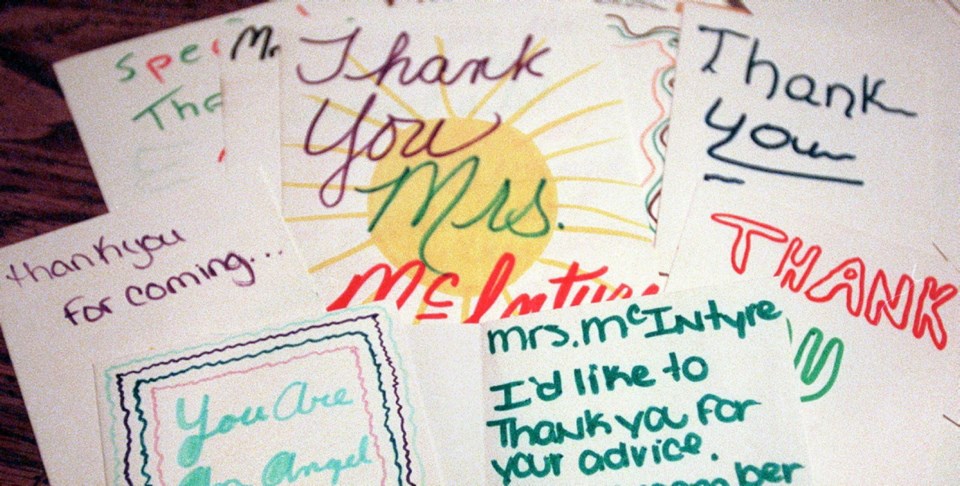Saying “thank you” is often the first lesson in manners parents teach their children. Science now shows the benefits of those words flow both ways.
A new study, the first of its kind, recently published in the psychological journal Emotion, suggests when people receive expressions of gratitude, they tend to think warmly about the person offering thanks and even think more positively about starting a relationship.
“A simple ‘thank you’ leads people to view you as a warmer human being and consequently to be more interested in socially engaging with you,” said Monica Bartlett, study author and associate professor of psychology at Gonzaga University in Spokane, Washington.
“Saying thank you really matters,” said Bartlett. “It’s not just the polite thing to do. There are actual ramifications to whether you say thank you or not.”
Bartlett’s study, co-authored with Lisa Williams from the University of New South Wales, Australia, involved asking 70 university students to edit a high school paper as a kind of mentor.
Afterward, the university students received hand-written notes ostensibly from the high schoolers. But only half the notes included the words “thank you.”
Later, when polled, the university students who were thanked were more likely to say they would be happy to continue as mentors to the high school students and were also more likely to rate the high schoolers as having warm personalities.
Also, those who were thanked “wanted to continue to engage, so they were more willing to leave email addresses or phone numbers for the supposed high school students and continue to get to know them,” said Bartlett in a telephone interview from her office in Spokane.
She said she was uncertain how her recent findings might apply to young children. But an early-childhood education specialist at Camosun College said learning to recognize a kindness and respond with thanks are brilliant lessons for children.
After reading of Bartlett’s study, Joan Astren, acting chairwoman of community, family and child studies at Camosun, said it was gratifying to see good evidence bearing out the importance of “thank you.”
Astren said children as young as one and just learning to speak in single words, can be exposed to expressions of gratitude.
“Growing up is an accumulation of knowledge and experience,” she said. “So when we model for a [very young] child by saying ‘thank you’ to that child — and to each other — we are helping the child build an effective vocabulary.”
Indeed, the whole experience of receiving a kindness and expressing gratitude can be a very intense learning experience for small children.
If, for example, children receive something pleasant, such as a cookie, they can consider how it made them feel. They must then work out how best to respond, based on their own experiences and knowledge.
“As adults, we should take these opportunities to be open and hear what a child’s experiences are,” Astren said.
“We can help them notice what is going on between them and another and give them cues and prompts where necessary to follow through. And we can give the child a descriptive language to connect with what’s happening in their world.
“We can say, ‘That was really thoughtful when Grandma gave you that cookie, wasn’t it?’ or ‘You were really thoughtful when you shared your teddy bear.’ ”
For Astren, a big part of early childhood education is teaching children an effective emotional vocabulary. It’s words that help them understand and navigate human social moments such as kindness and gratitude.
It also teaches them that good actions can have good consequences.
“So if a child is being helpful or thoughtful or patient, we let them know,” Astren said.
“We can tie that to the actions they are doing and a child begins to understand that what they are doing does have consequences.
“So children begin to understand that they have regard in this world and they can make a difference,” she said. “They learn they have a capacity and they can make things occur in a positive light in their world.”
Astren also said teaching a child how to understand and express gratitude is one of the earliest and best lessons in helping them build a good sense of self-esteem.
“They get good self-esteem by realizing they can make positive changes in their world.” said Astren.
“And if we can build positive capacity in young children, then we are setting them up with a really great life skill.”



